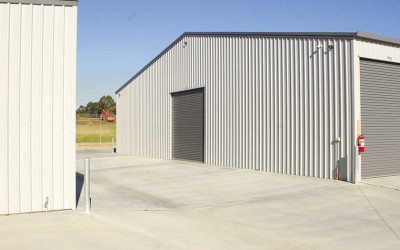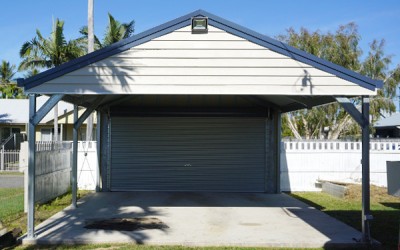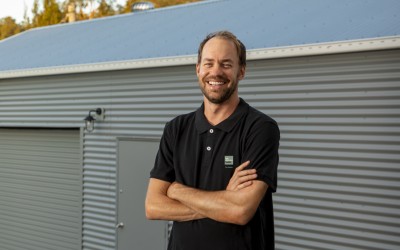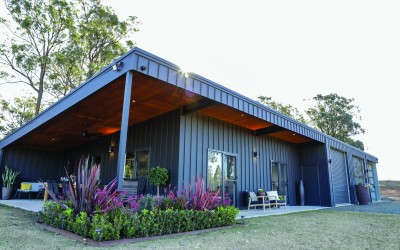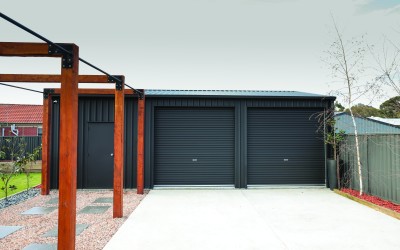
The great Aussie shed can be as unique as our DNA – a personal space used for so many different reasons.
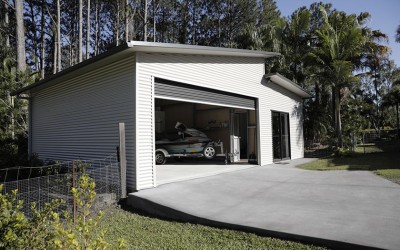
Increase the usability of your home and create a secure garage – either just for functional use, or to add an extra design feature to your home’s façade.
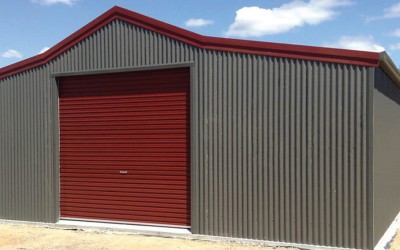
The Aussie barn – with its striking roofline – is the go-to for customers looking for the centre roof height of a barn, but without the drop of an American barn.
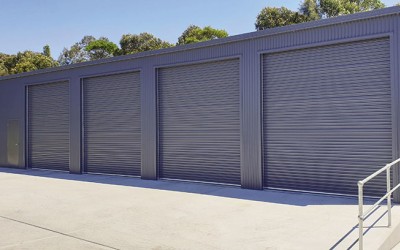
Whether you’re a self-storage facility, builder, owner, investor or buyer, we know self-storage.
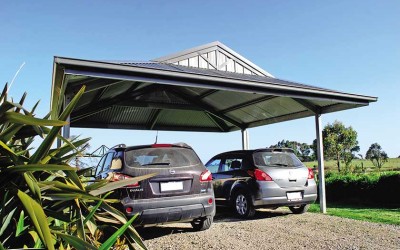
The carport is more than just a protected spot to park your car, it’s an Aussie icon.
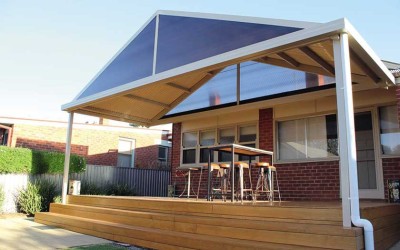
The great entertainer – the Aussie patio. It’s not just a patio – it’s where you create memories to last a lifetime.
Hit enter to search or ESC to close
Do I Need Council Approval to Build a Shed in QLD?
21 December 2024
Shed Regulations QLD
Building a shed on your property can be a fantastic way to gain extra storage, create a workshop, or even add value to your home. However, before starting your project, it's very important that you understand whether or not you need council approval to build a shed in Queensland.
This can be pretty confusing, especially if you've never had to deal with this kind of thing before, but that's where we step in to help. Here, you'll find all of the information you need about approval requirements, including local government planning schemes, the Queensland Development Code, and other relevant codes that may apply to your build.
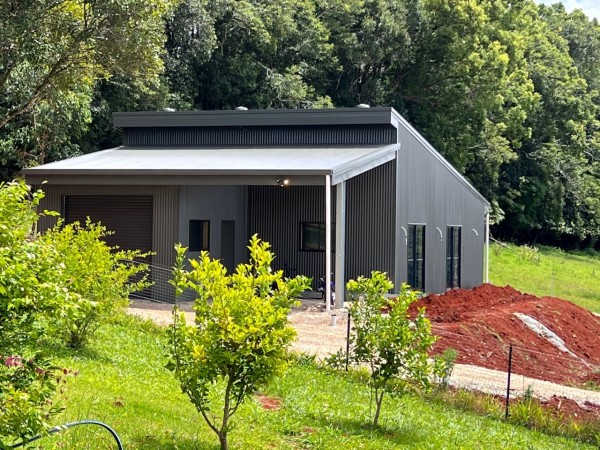
Do I Need to Apply for Planning Permission to Build a Shed in Queensland?
The need for planning approval or building approval for a shed in Queensland depends on a few different factors. These include the size, height, location, and use of the proposed shed, as well as its proximity to boundary setbacks, adjoining property, and other structures. According to the Queensland Development Code, some shed projects may fall under "accepted development", and this means they do not require council approval if they meet specific criteria.
For example, domestic outbuildings like sheds are generally considered class 10a non habitable buildings. So, if your shed is less than 10 square metres in floor area, does not exceed 2.4 metres in height, and complies with boundary setbacks and other building assessment provisions, it may not require a building permit.
However, this doesn't mean you won't need some sort of approval, and additional considerations often apply to sheds in flood hazard areas, rural residential zones, or near swimming pool fencing.
Disclaimer: This information is provided for general use only, and is not intended as a guarantee of current regulations. Please review all regulations independent of the following information, or contact your local Fair Dinkum Builds store to confirm exact requirements.
What Are the Consequences of Building a Shed Without Council Approval in QLD?
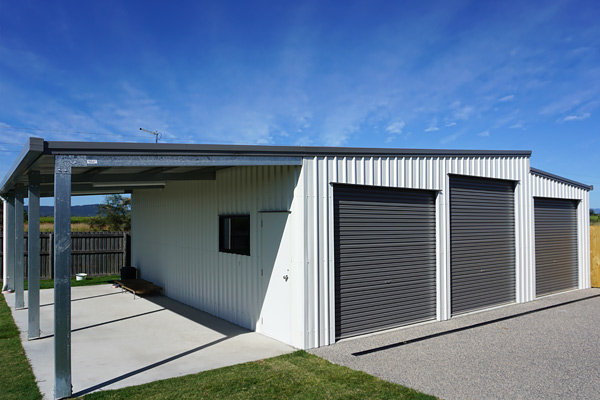
While it may all seem quite daunting, skipping the approval process can lead to serious consequences for your shed project. Building work that does not comply with the Building Act, Building Regulation, or local government planning schemes can result in the following.
Fines & Penalties
A local council can charge you quite a hefty fine for carrying out building work without permission or for non-compliant building works (e.g., building a shed that is different from the one that you gained planning approval for).
Modification or Demolition
If your shed does not comply with setback requirements, structural sufficiency, or other approval requirements, your local council can make you modify or even demolish the structure.
Impact on Property Value
Non-compliant sheds can affect the resale value of your residential property, as prospective buyers may be hesitant to take on existing buildings that don't meet approval requirements.
Fire Safety Risk
As non-compliant sheds may lack proper fire separation or structural integrity, they can pose as potential safety hazards, especially in areas of Queensland where bushfires are more of a risk.
Complications with Future Approvals
Building a shed without approval can also create issues if you want to undertake other building work on the same site.
What Steps Do I Need to Take to Get a Building Permit for a Shed in QLD?

When you are building a shed that requires council approval or development approval, following the steps below will make it much easier to navigate the process efficiently:
Step 1: Provide a Copy of Your Shed Design to the Local Council
Submit detailed plans of the proposed shed, including dimensions, materials, and its location on the residential property. These plans should demonstrate how the shed complies with the Queensland Development Code and any other relevant standards.
Step 2: Provide Details on the Build Process
Include information about the construction process, such as whether you're using a licensed builder or constructing the shed yourself. This will show the local council that you've considered how the building work will meet structural integrity and applicable standards.
Step 3: Provide a Purpose Statement for the Shed (what will it be used for)
You'll also need to clarify the intended use of the shed, e.g. whether you're using it for storage, as a workshop, or any other domestic outbuilding functions. This step may seem a little intrusive, but it will help confirm that the the shed falls under class 10a as a non-habitable building.
Step 4: Lodge a Building Approval Application
Next, submit your building approval application through your local council. Make sure you include all necessary documents when doing this, as this will help avoid any delays.
Step 5: The Building Certifier Will Assess Plans and May Conduct Site Inspections
A building certifier will then review you plans to make sure they are compliant with the building code, structural sufficiency, setback requirements, and fire separation standards. They may also inspect the site for factors such as boundary setbacks, adjoining property impacts, or potential flooding risks.
Step 6: Building Approval is Granted if it Meets All Regulatory Requirements
If your proposed shed complies with all the relevant approvals and codes, you will receive a building permit and can proceed with the construction.
Ready to start planning your new shed? Learn more about design and customisation options for sheds.
How Much Does it Cost to Apply for Council Approval to Build a Shed in QLD?
The cost of applying for council approval or a building permit varies based on the local council and the complexity of the shed project. As a general guide, typical fees for building approvals range from $150 to $500, and there may be additional costs to consider, including fees for private building certifiers and site inspection fees. You may also be charged for resubmitting plans or addressing non-compliance issues.
For the most accurate estimate, contact your local council and refer to official resources, such as the Queensland Government's building approval factsheet.
What Size Shed Can I Build Without Council Approval in QLD?
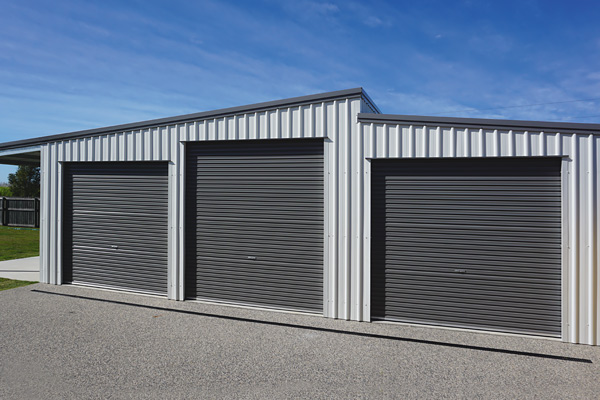
Under the Queensland Development Code, certain domestic outbuildings may not require council approval provided they meet specific criteria, including:
-
Floor Area: Less than 10 square metres.
-
Height: Not exceeding 2.4 metres.
-
Length: Is no longer than five metres on any side.
-
Structural Integrity: Will not affect the structural integrity of existing buildings, retaining walls, or other structures on the property or adjoining property.
-
Alteration: Will not alter an existing pool enclosure or pool shed.
These limits apply to sheds in residential zones, and local government planning schemes must also be considered. Larger sheds, or those in a tropical cyclone area or rural residential zone, may require additional approvals. To confirm whether your shed falls under accepted development, it's best to consult with your local council or a private building certifier.
Contact Your Local Council in QLD or Get in Touch with Our Team to Get the Latest Details on Building Approvals for Sheds
It's fair to say that navigating the complexities of council approval, building permits, and relevant approvals for sheds in Queensland can seem overwhelming. However, with proper planning and adherence to the building code, there's no reason why your shed building project can't run smoothly! Start by contacting your local council to determine whether your shed requires any approvals under local government planning schemes. Or, to make things much easier, reach out to Fair Dinkum Builds, who will be happy to do the hard work on your behalf.
For expert guidance, reach out to our team today, and let us help you take the first step in the right direction.
Ready to start designing? Check out our free shed designer app.


